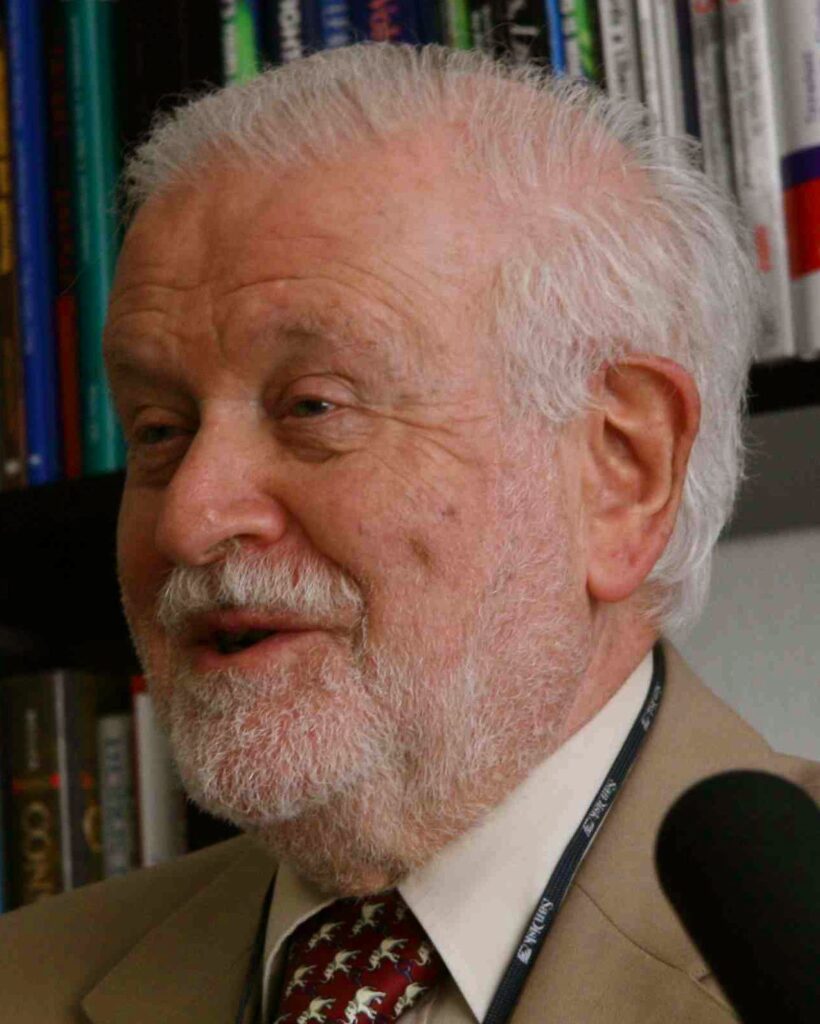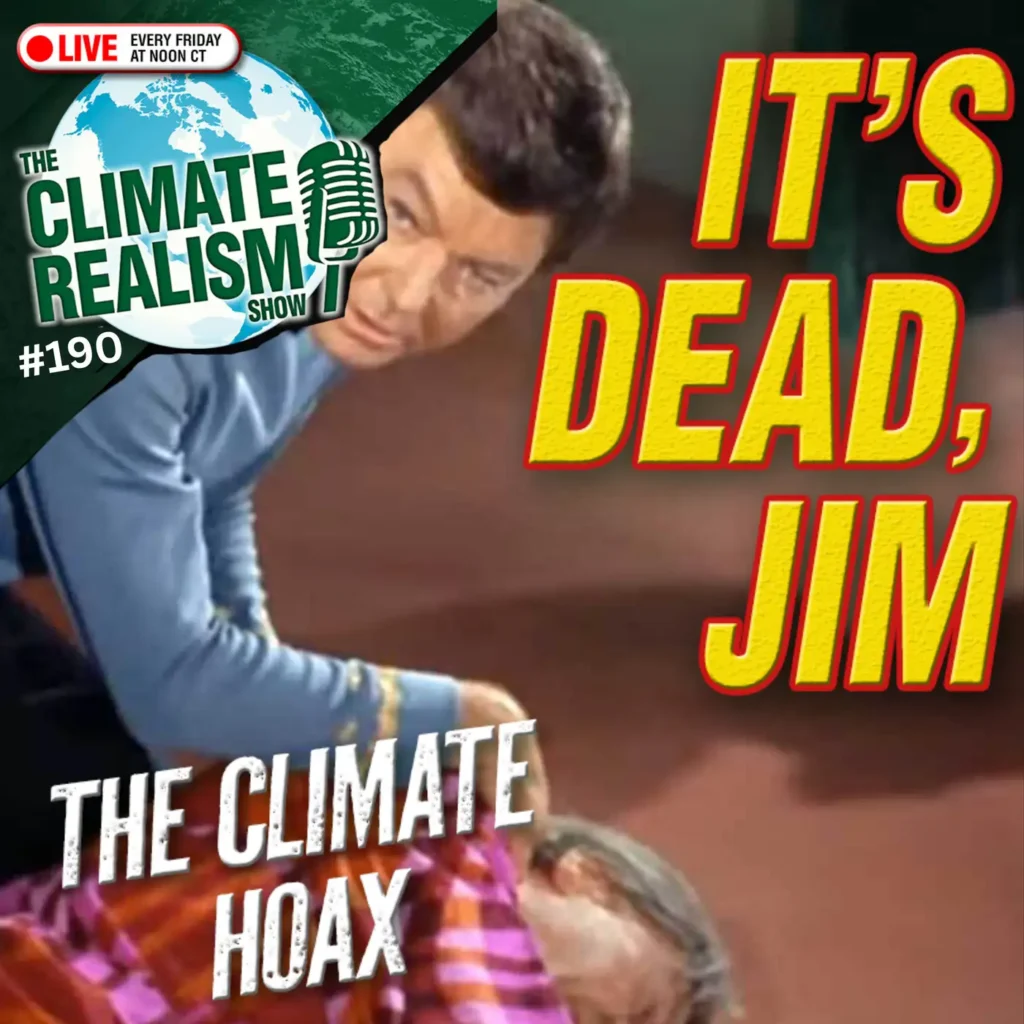
S. Fred Singer (1924 – 2020)
He passed away on April 6, 2020 at the age of 95.
Dr. Singer is the author, coauthor, and editor of many books, including Climate Change Reconsidered (several volumes), a comprehensive critique of the assessment reports of the United Nations’ Intergovernmental Panel on Climate Change. He was a senior fellow of The Heartland Institute and research fellow with the Independent Institute.
Dr. Singer, an atmospheric and space physicist, founded the Science and Environmental Policy Project (SEPP) and the Nongovernmental International Panel on Climate Change (NIPCC). He served as professor of environmental sciences at the University of Virginia, Charlottesville, VA (1971-94); distinguished research professor at the Institute for Space Science and Technology, Gainesville, FL (1989-94); chief scientist, U.S. Department of Transportation (1987- 89); vice chairman of the National Advisory Committee for Oceans and Atmosphere (NACOA) (1981-86); deputy assistant administrator for policy, U.S. Environmental Protection Agency (1970-71); deputy assistant secretary for water quality and research, U.S. Department of the Interior (1967- 70); founding dean of the School of Environmental and Planetary Sciences, University of Miami (1964-67); first director of the National Weather Satellite Service (1962-64); and director of the Center for Atmospheric and Space Physics, University of Maryland (1953-62).
Dr. Singer did his undergraduate work in electrical engineering at Ohio State University and holds a Ph.D. in physics from Princeton University.
Dr. Singer published more than 200 technical papers in peer-reviewed scientific journals, including EOS: Transactions of the AGU, Journal of Meteorology and Atmospheric Physics, Science, Nature, Bulletin of the American Meteorological Society, Geophysical Research Letters, and International Journal of Climatology. His editorial essays and articles have appeared in Cosmos, The Wall Street Journal, New York Times, New Republic, Newsweek, Journal of Commerce, Washington Times, Washington Post, and many other publications. His accomplishments have been featured in front-cover stories appearing in Time, Life, and U.S. News & World Report
Dr. Singer is author, coauthor, or editor of more than a dozen books and monographs, including Global Effects of Environmental Pollution (Reidel, 1970), Is There an Optimum Level of Population? (McGraw-Hill, 1971), Free Market Energy (Universe Books, 1984), Global Climate Change (Paragon House, 1989), The Greenhouse Debate Continued: An Analysis and Critique of the IPCC Climate Assessment (ICS Press, 1992), Hot Talk Cold Science: Global Warming‘s Unfinished Debate (Independent Institute, 1997, 1999), Climate Policy: From Rio to Kyoto (Hoover Institution, 2000), Unstoppable Global Warming: Every 1,500 Years (Rowman & Littlefield, 2007, revised ed. 2008), Nature, Not Human Activity, Rules the Climate: The Summary for Policymakers of the Report of the Nongovernmental International Panel on Climate Change (Heartland Institute, 2008), Climate Change Reconsidered: The 2009 Report of the Nongovernmental International Panel on Climate Change (NIPCC), Climate Change Reconsidered: 2011 Interim Report; Climate Change Reconsidered II: Physical Science (2013), and Climate Change Reconsidered II: Biological Impacts (2014).
Dr. Singer was an elected Fellow of the American Association for the Advancement of Science (AAAS), American Geophysical Union, American Physical Society, and American Institute for Aeronautics and Astronautics. He was elected to the AAAS Council and served on the Committee on Council Affairs, and as Section Secretary. In 1997, NASA presented Dr. Singer with a commendation and cash award “for important contributions to space research.”
Dr. Singer gave hundreds of lectures and seminars on global warming, including to the science faculties at Stanford University, University of California-Berkeley, California Institute of Technology, State University of New York-Stony Brook, University of South Florida-St. Petersburg, University of Connecticut, University of Colorado, Imperial College-London, Copenhagen University, University of Rome, and Tel Aviv University. He also gave invited seminars at Brookhaven National Laboratory, the Max Planck Institute for Extra-Terrestrial Physics in Munich, the Max Planck Institute for Meteorology in Hamburg, and the National Center for Atmospheric Research in Boulder, Colorado.
Dr. Singer was a pioneer in many ways. At the Applied Physics Laboratory of Johns Hopkins University, he participated in the first experiments using high-altitude research rockets, measuring the energy spectrum of primary cosmic rays and the distribution of stratospheric ozone; he is generally credited with the discovery of the equatorial electrojet current flowing in the ionosphere. In academic science during the 1950s, he published the first studies on subatomic particles trapped in the Earth’s magnetic field: radiation belts, later discovered by James Van Allen.
Dr. Singer was the first to make the correct calculations for using atomic clocks in orbit, contributing to the verification of Einstein’s General Theory of Relativity and now essential in the GPS system of satellite navigation. He also designed satellites and instrumentation for remote sensing of the atmosphere and received a White House Presidential Commendation for this work.
In 1971, Dr. Singer calculated the anthropogenic contribution to atmospheric methane, an important greenhouse gas. He also predicted that methane, once reaching the stratosphere, would transform into water vapor, which could then deplete stratospheric ozone. A few years later, methane levels were indeed found to be rising, and the increase in stratospheric water vapor was confirmed in 1995.
Dr. Singer served on the editorial advisory board of Regulation. He appeared many times in peer-reviewed journals, including the following since 1996:
Singer, S.F. 1996. Climate debate. Nature 384: 522-523.
Singer, S.F. 1999. Human contribution to climate change remains questionable. Also, Reply. EOS: Transactions, American Geophysical Union 80 (33): 186-187 and 372-373.
Singer, S.F. 2000. Climate policy-From Rio to Kyoto a political issue for 2000 and beyond. Essays in Public Policy 102. Stanford, CA: Hoover Institution, Stanford University.
Singer, S.F. 2001. Global warming: An insignificant trend? Science 292: 1063-1064.
Singer, S.F. 2001. Disparity of temperature trends of atmosphere and surface. Paper presented at 12th Symposium on Global Climate Change, American Meteorological Society, Albuquerque, NM.
Singer, S.F. 2002. Statistical analysis does not support human influence on climate. Energy and Environment 13:329-331.
Douglass, D.H., Pearson, B., and Singer, S.F. 2004. Altitude dependence of atmospheric temperature trends: Climate models versus observations. Geophysical Research Letters 31.
Douglass, D.H., Pearson, B.D., Singer, S.F., Knappenberger, P.C., and Michaels, P.J. 2004. Disparity of tropospheric and surface temperature trends: new evidence. Geophysical Research Letters 31: L13207, DOI:10.1029/2004GL020212.
Douglass, D.H., Christy, J.R., Pearson, B.D., and Singer, S.F. 2007. A comparison of tropical temperature trends with model predictions. International Journal of Climatology (Royal Meteorological Society). DOI:10.1002/joc.1651.
Singer, S.F. 2010. Viewpoints and technical communications: a response to “The climate change debates,” Energy & Environment.
Loehle, C. and Singer, S.F. 2010. Holocene temperature records show millennial-scale periodicity. Canadian Journal of Earth Sciences 47:1327-1336.
Singer, S.F. 2011. Lack of consistency between modeled and observed temperature trends. Energy & Environment 22: 375-406.
Singer, S.F. and C.W. Monckton. 2012. Overcoming chaotic behavior of climate models. In R. Ragaini (Ed.) International Seminar on Nuclear War and Planetary Emergencies – 44th Session: The Role of Science in the Third Millennium. World Scientific Publishing Company.
Singer, S.F. 2012. IPCC exercise in curve-fitting to prove anthropogenic global warming (AGW), Energy & Environment 23 (4).
Singer, S.F. 2013. Inconsistency of modeled and observed tropical temperature trends. Energy & Environment 24: 405-413.
For more information on Dr. Singer, visit the website of the Science and Environmental Policy Project at www.sepp.org. To see his presentations at The Heartland Institute’s International Conferences on Climate Change, click this link.
S. Fred Singer (1924 – 2020) Contributions

- Climate Change
- Environment & Energy



- Climate Change
- Environment & Energy
- Environment & Energy



